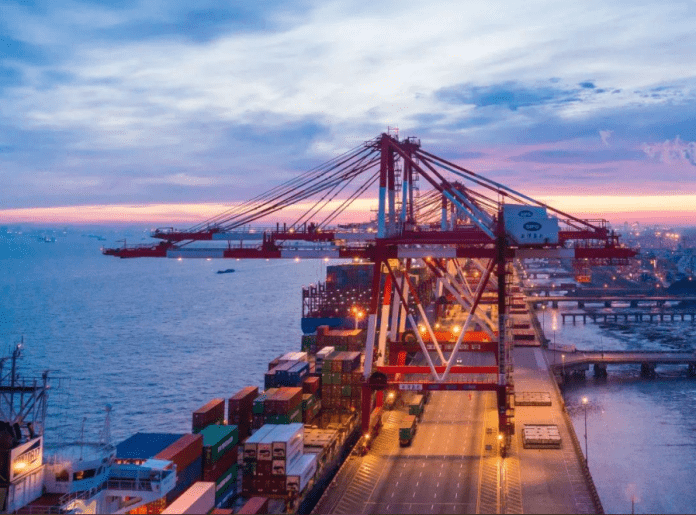The Shanghai International Port Group (SIPG) has announced a container “land-to-water” service, covering the ports in the Yangshan area and Waigaoqiao area of Shanghai Port to related ports in the Yangtze River and Yangtze River Delta areas.
The measure is taken in order to alleviate the pressure on road transportation caused by the impacts of the epidemic, which led to phased lockdowns in the Shanghai municipality.
Under the service, customers can first transport containers to Taicang Service Center, and then transfer them by ship to Shanghai Port, and divert customers’ road transportation needs to waterways through “land to water” to ensure smooth logistics channels during the pandemic days.
Also, as the most important import and export area in Shanghai, the Pudong district has brought together important hubs like Pudong International Airport, Yangshan Port Area, and Waigaoqiao Port Area.
To keep the port area secured from the outbreak of coronavirus, the port group also launched the electronic epidemic prevention pass for truck drivers entering the area to unload and load boxes there.

The platform generates electronic epidemic prevention passes for drivers to use on their mobile phones by connecting the nucleic acid detection data and sends code information of the big data center combined with the business information of electronic equipment handover orders, which significantly improves the logistics turnover efficiency of container vehicles.
Since 28 March, Shanghai has implemented the nucleic acid screening in batches with the Huangpu River as the boundary.
The Shanghai Maritime Safety Administration also strictly implemented epidemic prevention and control measures, keeps a close eye on the safety line of defense, implemented unitised management, and strictly implemented the 24-hour shift system for leaders and key positions.
Under the full protection of the Shanghai Maritime Safety Administration, the flow of ships in key waters like Shanghai Port, Huangpu River, Shanghai section of the Yangtze River, and the mouth of the Yangtze River has remained stable during the pandemic days.
On the other hand, in terms of public transportation– the operation of buses, subways, ferries, taxis, and online car-hailing has been suspended in the closed area of Shanghai.
Sharar Nayel
Asia Correspondent
 Hotline: 0944 284 082
Hotline: 0944 284 082
 Email:
Email: 


 VN
VN